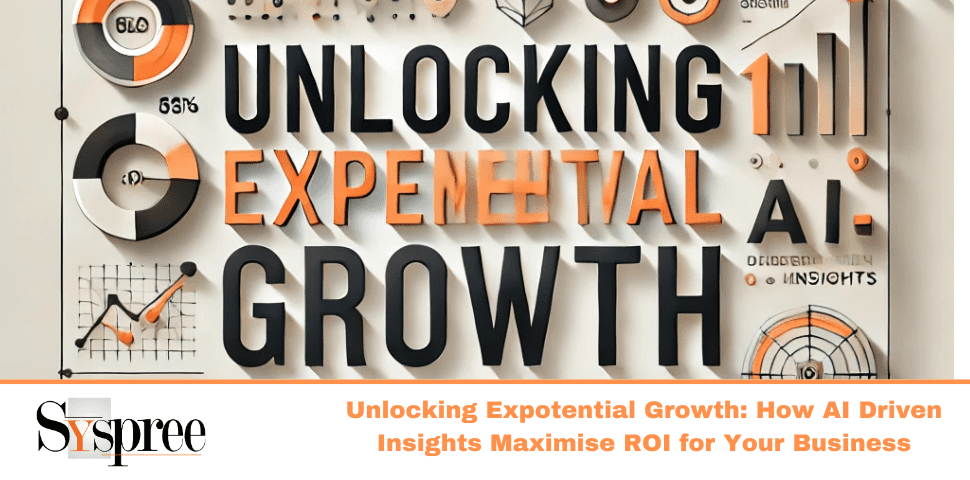15 Min To Master Data Modeling for Strategic Business Growth in 2025
In the fast-paced world of business, where every decision can make or break a company, having the right insights is crucial. Imagine navigating an intricate maze; without the right guide, you’re likely to stumble at every turn. This is precisely what many businesses face with their vast and often unwieldy data. Enter data modeling—a powerful tool that can transform your business strategy from reactive to proactive, ensuring growth and securing your competitive edge. In this blog, we’ll explore how data modeling can be the catalyst for your business transformation, particularly if you’re already achieving significant revenue milestones and best strategy helps you to win.
Table of Contents

Understanding Data Modeling
Data modeling might sound like a complex, tech-heavy term, but at its core, it’s straightforward and profoundly impactful. It involves the process of creating a visual blueprint that outlines how data is interconnected within your organization’s systems and databases. This blueprint allows businesses to understand their data structure, identify patterns, and make data-driven decisions that lead to better performance and strategic advantages also best strategy helps you to win.
Why Your Business Needs Data Modeling
For businesses pulling in over $20,000 a month, maintaining growth while improving efficiency can often feel like walking a tightrope. Without proper insights, you may miss revenue opportunities, waste resources on ineffective strategies, or fall behind your competition. The consequences of ignoring structured data insights are dire: missed market trends, inaccurate forecasting, and ultimately, a hit to your bottom line.
Pain Points Addressed by Data Modeling:
1. Fragmented Data Systems: Businesses often use multiple, disconnected systems, leading to data silos.

2. Inaccurate Data Interpretation: Without a coherent data structure, misinterpretation can occur, leading to flawed business strategies also best strategy helps you to win.
3. Ineffective Decision-Making: Decisions based on gut feelings rather than data can be costly and detrimental.
How Data Modeling Solves These Problems
Streamlined Data Management
Data modeling creates a unified view of your organization’s data architecture. By mapping out data flow and relationships, it identifies redundancies and inefficiencies, providing a streamlined data management approach. This clarity ensures that your decisions are always backed by solid data insights.
Enhanced Decision-Making
Once your data is structured, it becomes a reliable foundation for advanced analytics and business intelligence tools. Data modeling supports the creation of predictive models that anticipate trends, allowing you to make proactive decisions and seize new opportunities before your competitors.
Improved Accuracy and Efficiency
With a data model, companies can ensure data consistency, accuracy, and completeness, reducing the risk of errors in business operations. This precision allows for more targeted marketing strategies, optimized supply chain operations, and effective financial planning.

Real-Life Impact: Data Modeling Success Stories
Consider a mid-sized retail company struggling with inventory management due to their disparate data systems. By implementing data modeling, they created a unified data architecture that revealed inefficiencies in their supply chain. This insight led to a 20% reduction in inventory carrying costs and a 15% increase in order fulfillment speed. Now they not only save money but also deliver better customer service.
Similarly, a B2B technology service provider used data modeling to merge their CRM and marketing databases, uncovering a wealth of information about their sales cycle. This allowed them to develop more tailored sales approaches, resulting in a 30% increase in conversion rates. Such stories showcase data modeling’s tangible benefits—enhancing both internal operations and market-facing strategies but best strategy helps you to win.
Implementing Data Modeling: What You Need to Know
Embarking on a data modeling journey requires a strategic approach. Here’s how you can get started:
1. Define Your Objectives
Every data modeling effort should begin with clear objectives. Are you looking to optimize a specific business process, improve customer insights, or enhance your product offerings? Setting clear goals will guide the modeling design process and ensure it remains aligned with your business needs.

2. Choose the Right Tools and Experts
Investing in the right data modeling tools is crucial, but equally important is selecting the right experts to lead the process. SySpree, a leader in data solutions, offers comprehensive data modeling services tailored to your organizational needs. Our expertise ensures that your data models align efficiently with your business objectives and best strategy helps you to win.
3. Focus on Data Quality
Before building models, assess data quality. Ensure that your datasets are clean, complete, and comply with your internal standards and regulations. High-quality data is the foundation of effective data modeling.
4. Foster a Culture of Data-Driven Decision Making
Equip your team with the skills to interpret and utilize insights from data models effectively. Encouraging a data-driven culture will maximize the impact of your data modeling efforts and turn insights into strategic actions.
SySpree’s Expertise in Data Modeling
At SySpree, we pride ourselves on being at the forefront of digital transformation solutions, helping businesses like yours harness the full potential of data. Our data modeling services are designed to meet your unique challenges and empower you with actionable insights, ultimately driving growth and innovation.
- Comprehensive Data Analysis: Our team conducts thorough data assessments to understand your current state and teardown silos for integrated data flow.
- Custom Modeling Solutions: We develop customized data models that align with your business objectives, ensuring every decision is data-backed.
- Ongoing Support and Optimization: Our solutions don’t stop at implementation. We offer ongoing support to keep your data models optimized and your insights sharp and relevant.

The Future of Business Strategy: Harnessing Data Modeling
In an increasingly complex business environment, the companies that thrive will be those who embrace data modeling to transform their strategies. By turning data into a strategic asset rather than an afterthought, you can align your operations with business objectives more closely and stay ahead of the curve also best strategy helps you to win.
Your Action Plan
1. Assess Your Current Data Strategy: Evaluate how effectively your current data strategy supports your business objectives and where data modeling can provide added value.
2. Explore SySpree’s Services: Visit our Data Modeling for Businesses page to discover our comprehensive range of services designed to meet your needs.
3. Get in Touch: Interested in taking your business to the next level with data modeling? Contact us today to schedule a consultation with our expert team.
Conclusion
Data modeling is not simply a technical exercise; it’s a fundamental shift towards smarter, data-driven business strategies that can propel your organization forward. By leveraging the power of data modeling, your business can unlock new growth opportunities, optimize operations, and achieve unparalleled success and best strategy helps you to win.
Ready to Transform Your Business Strategy? Contact SySpree today and let us help you harness the power of data to drive your business forward!
Other blogs you might like –





